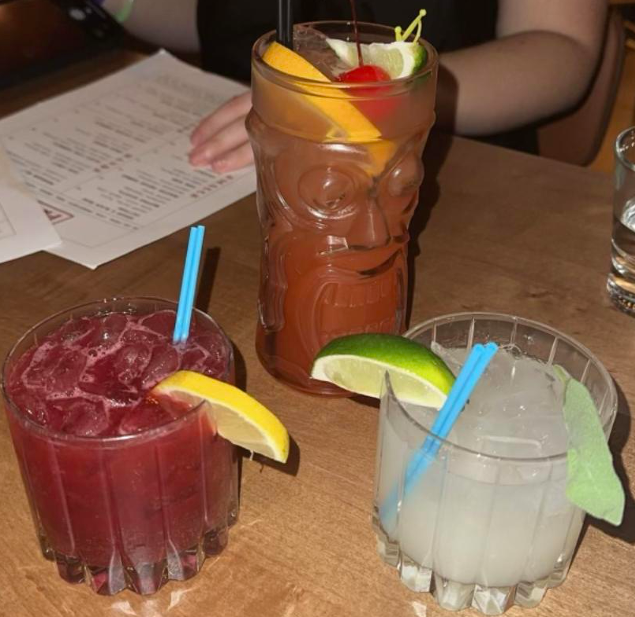Gluten. What is it exactly? Jimmy Kimmel, host of Jimmy Kimmel Live, recently interviewed strangers who were strictly gluten-free on the street for his famous, and hilarious, “Pedestrian Question” series. He found that even though these people avoided gluten like a plague they could not identify what it actually was.
Local grocery stores are teeming with gluten-free products. Gluten-free labels can be seen on endless packaging, even bags of rice and jars of peanut butter, which in no way can contain gluten in the first place. College campuses like the University of Massachusetts have gluten-free options for those with celiac disease or other gluten-based dietary restrictions. The word “gluten” is everywhere. But how much of the gluten-free movement is actually catered to bettering people’s health, and how much is just a fad nurtured by health nuts and clever marketers?
First for the facts, gluten is “a substance present in cereal grains, especially wheat, that is responsible for the elastic texture of dough,” according to the National Library of Medicine. It’s found naturally in barley, rye, oats, wheat, and spelt. This means that many of America’s favorite foods, like bread, pasta, pastries, cereals, crackers, granola and beer, a truly endless list, contain gluten. Not all grains contain the protein though, some naturally gluten-free grains include rice, potatoes, corn and quinoa.
Celiac disease is the most severe gluten-related dietary condition that causes intestinal damage after consuming gluten. It affects one in 100 people worldwide and, according to Celiac.org, 2.5 million Americans are currently undiagnosed. Something to note is that a wheat allergy is not synonymous with celiac; it is only an allergy to wheat alone. Gluten intolerance and sensitivity is more obscure and much less severe. It constitutes a reaction similar to celiac disease when gluten is consumed. This includes fatigue, nausea, irritable bowel syndrome and joint pains, but it is rare for long-term intestinal damage to occur. Curiously, it is still unclear whether gluten intolerance actually exists.
Peter Gibson, a professor of gastroenterology in Australia, conducted a famous experiment that showed GI distress caused by gluten consumption in non-celiac patients. This study initiated gluten intolerance and sensitivity diagnoses to become common practice. Many doctors now recommend cutting gluten out of the diet even to non-celiac patients because of this study and others like it. However, gluten intolerance causing lasting damages to the body has never actually been proven. In fact, Gibson later theorized that the test subjects’ distress may have been caused not by gluten but by another element in many foods including but not limited to gluten called FODMAPs. Skeptics argue that gluten intolerance is not real but rather a placebo effect.
Many “health-conscious” individuals in the past few years have diagnosed themselves as gluten intolerant. This, like all dietary fads, is what has fueled the insidious pop culture movement. Many falsely believe that cutting out gluten will reduce carbohydrate intake, but quite a few gluten-free products still contain the same amount of carbohydrates as those containing gluten.
I was diagnosed with gluten intolerance last February when I had a blood test. Supposedly, the foods I was eating were a source of my many unexplainable physical ailments. I, like most people, had no idea what gluten was. I was told to eliminate it altogether, which would end up changing my relationship with food for the next six months. Everything, it seemed, contained gluten.
I am also originally from Louisiana where gluten-free options are harder to find outside of Whole Foods. Many of the local Creole foods contain gluten. After avoiding it for a few weeks, all of my symptoms disappeared. I had clearer skin, less fatigue and an increased appetite. There was a huge drawback though. I couldn’t eat a majority of my favorite foods, food prepared by loved ones or even my own birthday cake that year, which was pretty scarring.
I started eating gluten regularly again once I came to college. It has been over a month and thankfully none of my symptoms have reappeared. It makes me wonder if my symptoms were simply caused by an unhealthy amount of stress. I pray for the latter because I never want to stress over restaurant menus again.
If you are vacillating on whether or not to go gluten-free, the decision is completely up to you, but be warned. When your friends want to order a pizza, you have to pay for a pricey salad or eat nothing at all. Is it worth it? My opinion is if you don’t have celiac disease, don’t bother.
Sarah Gamard can be reached at [email protected].



















